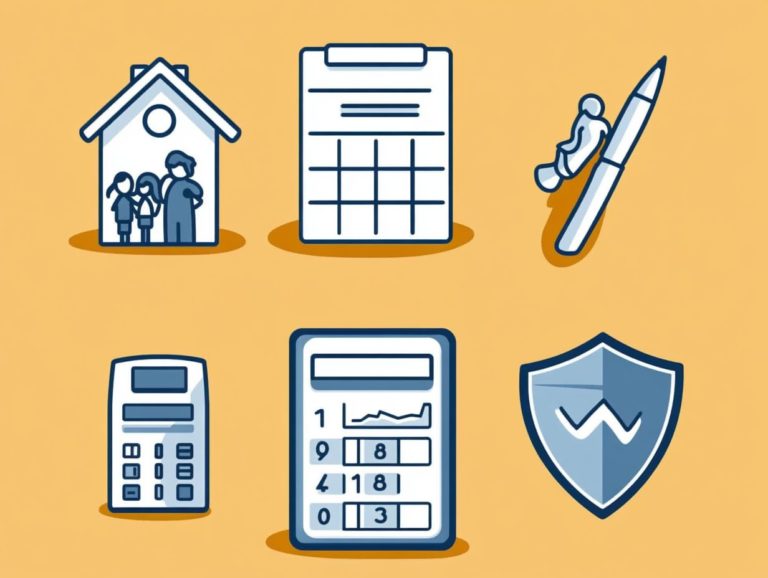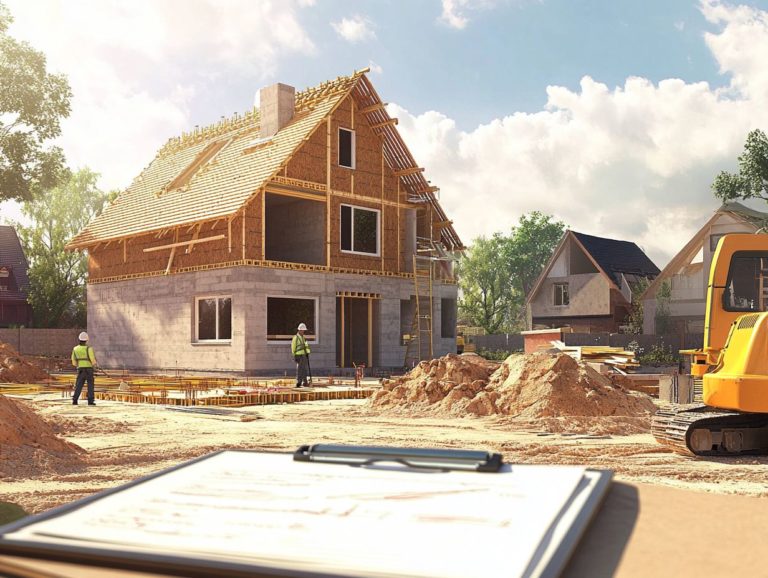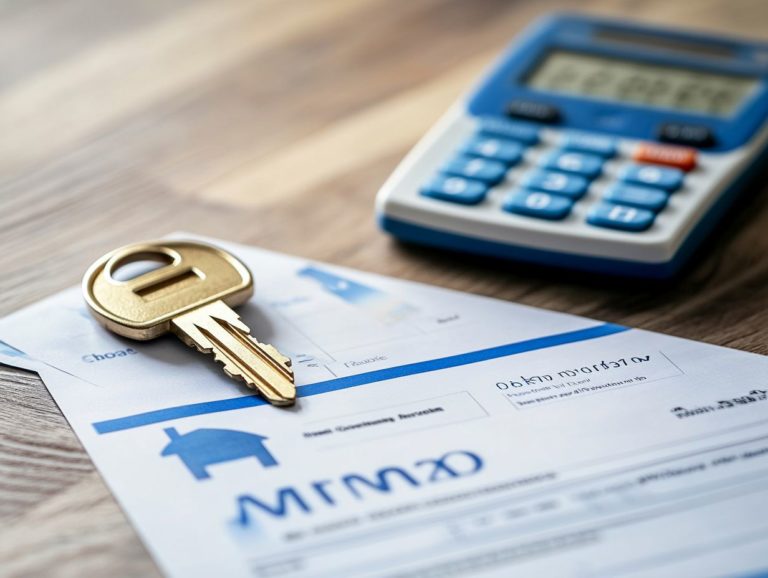5 Common Home Insurance Mistakes to Avoid
When it comes to safeguarding your home, securing the right insurance is absolutely essential.
Many homeowners stumble into common traps that can leave them vulnerable or even paying more than necessary for coverage. From underestimating their actual needs to neglecting the importance of shopping around for the best rates, these missteps can take a toll on both financial security and peace of mind.
Let s uncover five key home insurance mistakes you must avoid, delve into various coverage options, and provide tips to help you maximize the benefits of your policy.
Immerse yourself in this information to ensure your home is genuinely protected!
Contents
- Key Takeaways:
- 1. Not Having Enough Coverage
- 2. Not Understanding the Policy
- 3. Not Updating the Policy Regularly
- 4. Not Shopping Around for the Best Rates
- 5. Not Considering Additional Coverage Options
- What Does Home Insurance Typically Cover?
- Preguntas Frecuentes
- Cu les son los 5 errores comunes de seguros de hogar que se deben evitar?
- Por qu es un error subasegurar su hogar?
- Con qu frecuencia debo actualizar mi p liza de seguro de hogar?
- Cu les son algunas exclusiones comunes en la cobertura de seguros de hogar?
- C mo puede beneficiarme comparar precios para obtener la mejor tarifa?
- Por qu es importante comprar suficiente cobertura de responsabilidad civil?
Key Takeaways:
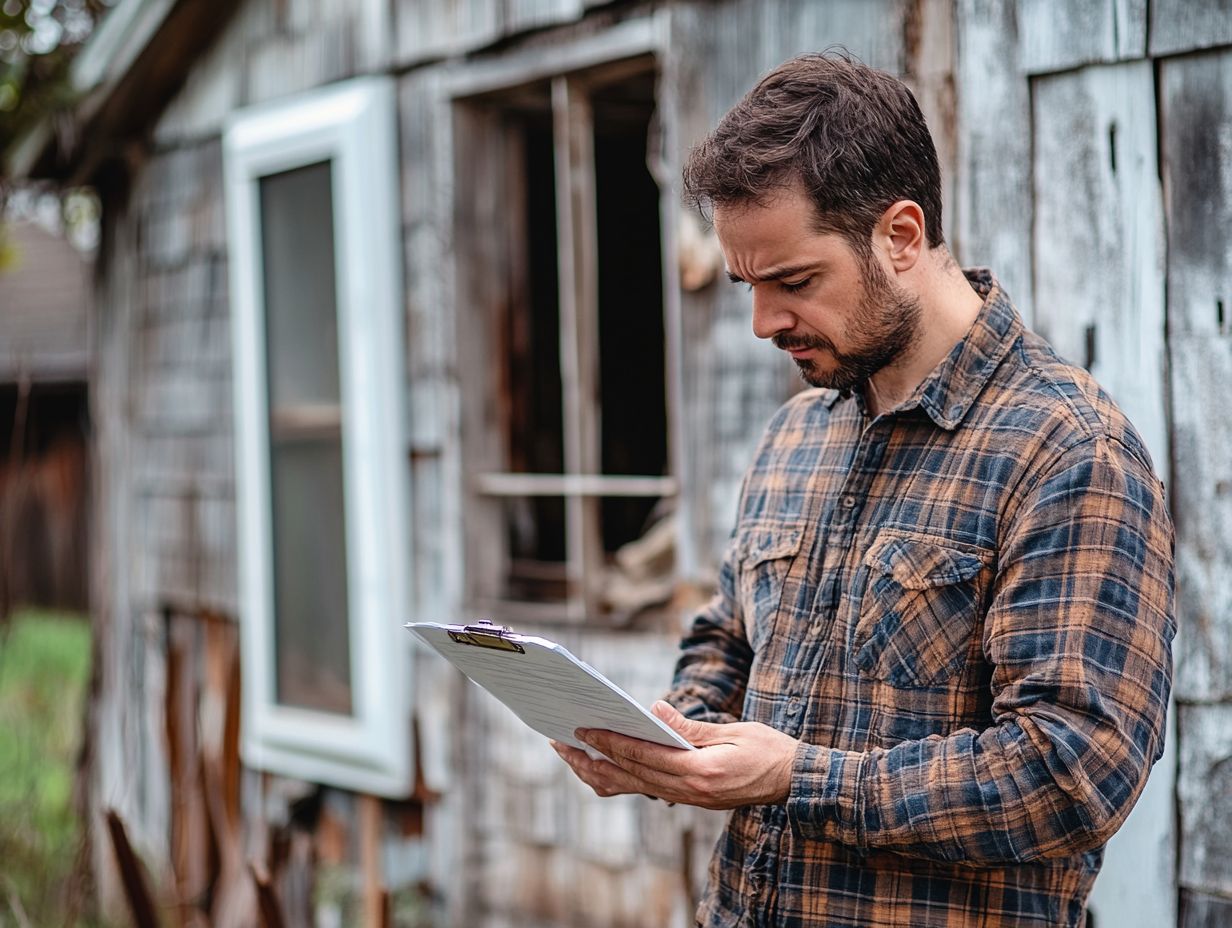
Make sure you have enough coverage for your home to avoid financial loss in the event of a disaster. Consider the 5 things to know before buying home insurance to ensure you’re well-prepared.
Understand your policy and its limitations to ensure you have the appropriate coverage for your needs.
Regularly review and update your policy to account for any changes in your home or assets.
1. Not Having Enough Coverage
Many homeowners tend to underestimate the significance of having adequate homeowners insurance coverage. They often choose lower coverage amounts that fail to reflect the true value of their personal belongings or the potential rebuilding costs in the face of a disaster. To better understand the implications, it’s important to be aware of the 5 common misconceptions about home insurance claims. This oversight can jeopardize their financial health and may lead to denied claims during critical moments.
Accurately calculating the market value of your home and its contents is essential. Take the time to assess everything you own, from furniture and electronics to treasured valuables, and maintain an updated inventory to ensure nothing slips through the cracks.
Insufficient liability coverage puts your finances at risk, particularly if an accident happens on your property. Exploring emergency coverage options can provide additional peace of mind.
By conducting regular risk assessments, you can adjust your insurance policies to accommodate changing circumstances, ensuring comprehensive protection and tranquility during turbulent times.
2. Not Understanding the Policy
Homeowners often find themselves navigating a minefield of insurance mistakes, largely due to a lack of understanding of their homeowners insurance policy. To avoid these pitfalls, it’s crucial to be aware of the 7 mistakes to avoid when buying home insurance. This confusion can lead to misunderstandings about what is covered and the claims process in emergencies.
It s essential for you to dedicate time to thoroughly review your policy, as many crucial details can easily slip through the cracks. Misunderstanding the fine print could have serious financial repercussions when you file a claim.
Consider consulting with an insurance agent or representative to clear up any uncertainties regarding your coverage. When it s time for policy renewals, asking pointed questions about exclusions or changes in coverage can save you from unwelcome surprises down the line.
Common pitfalls include overlooking limitations on specific types of damage or failing to comprehend the intricacies of the claims process, both of which can leave you vulnerable when you need support the most. It’s also important to be aware of the top home insurance myths that could affect your coverage decisions.
3. Not Updating the Policy Regularly
Failing to regularly update your homeowners insurance policy can leave you vulnerable to risks that arise from significant changes in your living situation, such as renovations, new acquisitions, or shifts in personal belongings. To safeguard against these issues, check out tips on how to avoid common home insurance pitfalls. Don’t let this oversight risk your financial safety!
It s vital to understand that your insurance needs evolve over time. For example, significant renovations can substantially increase your home’s value, making it essential to adjust your coverage to protect that added investment.
If you acquire new valuable items be it furniture, art, or electronics you may create gaps in your coverage if these aren t reported to your insurance provider.
Therefore, proactively discussing these changes with your insurance agent is crucial. This not only ensures you have adequate protection but may also reveal potential discounts available through updated policies, enabling you to manage your costs more effectively.
4. Not Shopping Around for the Best Rates
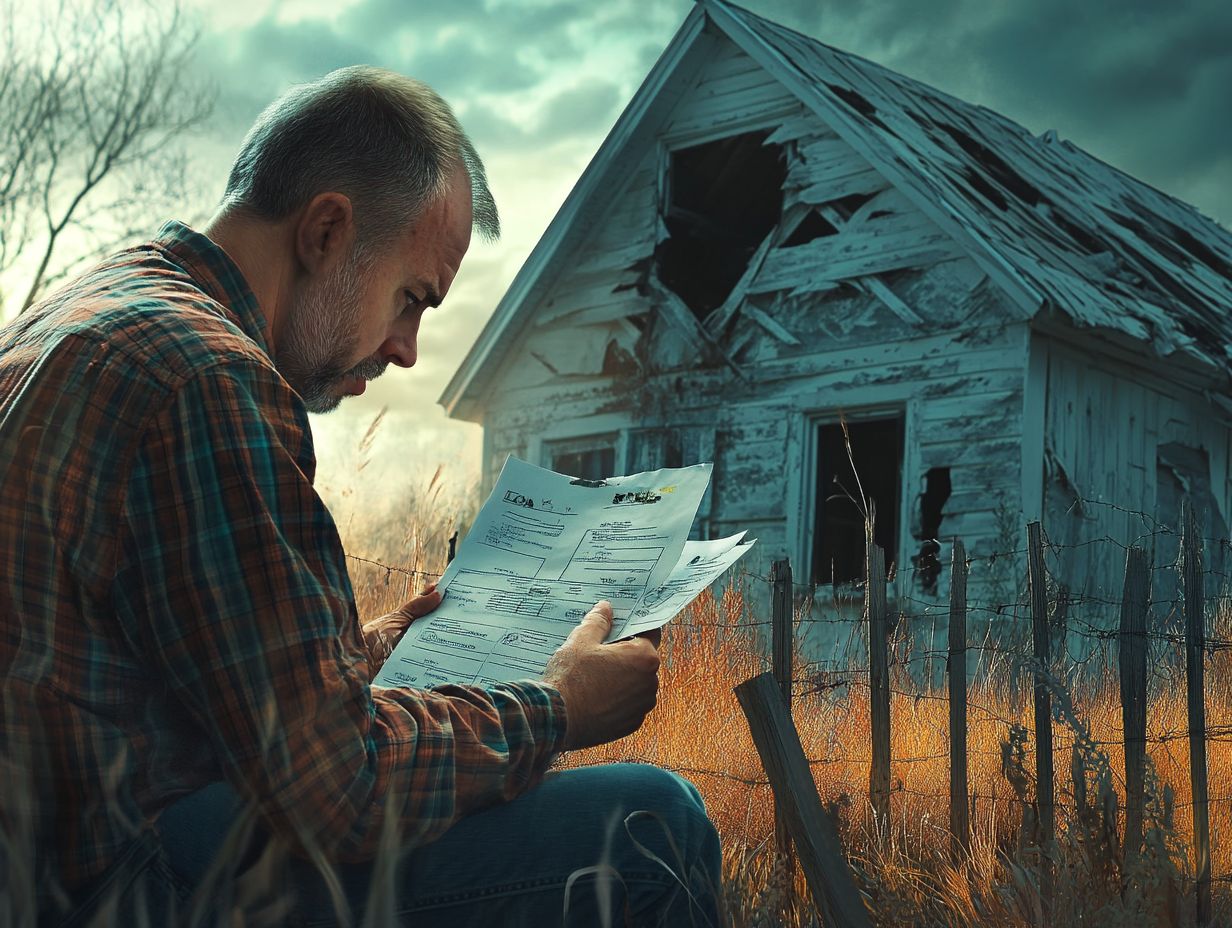
Homeowners often underestimate the importance of shopping around for the best homeowners insurance rates. This oversight can lead to missing out on significant savings and more favorable premiums, which can help avoid common mistakes when filing home insurance claims and provide better financial stability and tailored coverage options.
By leveraging reputable resources like Realtor.com or AM Best, you can compare a wide range of offers. This ensures that you make well-informed decisions. It s essential to look beyond just the price; understanding the coverage options and assessing customer service ratings can lead to a more satisfying insurance experience.
Different companies offer varying levels of service and support, which can greatly influence the claims process. Timing is important; policy renewals are the perfect moment to reassess your current coverage and explore other market options. This way, you can snag an incredible deal while securing adequate protection for your home.
5. Not Considering Additional Coverage Options
Neglecting to consider additional coverage options, such as flood insurance or sewer backup coverage, can leave you vulnerable to unexpected disasters. Standard homeowners insurance may not fully address these risks, ultimately compromising your emergency fund and financial resources.
In many areas, the risk of flooding isn’t just seasonal; it can strike unexpectedly due to heavy rains, seasonal snowmelt, or failing infrastructure. Be mindful of the unique threats in your geographic location, whether it’s earthquakes, hurricanes, or wildfires.
By incorporating these specialized policies, you strengthen your basic coverage and enhance your overall financial security. Understanding the maximum amount your insurance will pay for a claim is essential, as many homeowners find that their base policies fall short in crucial areas.
What Does Home Insurance Typically Cover?
Homeowners insurance offers a robust safety net, covering essential aspects like personal property, liability, and emergency needs. This ensures you re shielded from various risks while providing flexible options that can be customized to fit your specific requirements.
At its core, dwelling coverage safeguards the structure of your home from hazards such as fire or theft. Personal property coverage extends to your belongings, offering financial relief if these items are damaged or lost.
Liability coverage is equally crucial; it protects you if someone is injured on your property. Grasping these components is essential for making informed decisions that align with your unique circumstances. This knowledge ensures you enjoy peace of mind and comprehensive protection against unexpected setbacks.
What Are the Different Types of Home Insurance Policies?
Various types of homeowners insurance policies exist, each crafted to meet distinct coverage needs and risks. These options align perfectly with your unique circumstances and preferences.
Among these policies are HO-1, HO-2, HO-3, and HO-5. Each varies significantly in coverage levels and the specific risks they address.
The HO-1 policy offers the bare minimum, covering only a select few named perils. In contrast, the HO-3 policy is more robust, offering protection for a broader array of risks, including coverage for personal property against named perils. If you re looking for the ultimate in protection, the HO-5 policy is your best bet, as it covers both your dwelling and personal property without the limitations found in other options.
It’s essential to conduct a thorough risk assessment to accurately identify your specific needs. This will help you determine the most suitable policy for your lifestyle and property type.
Start comparing rates today to secure the best coverage for your home!
What Factors Can Affect Home Insurance Rates?
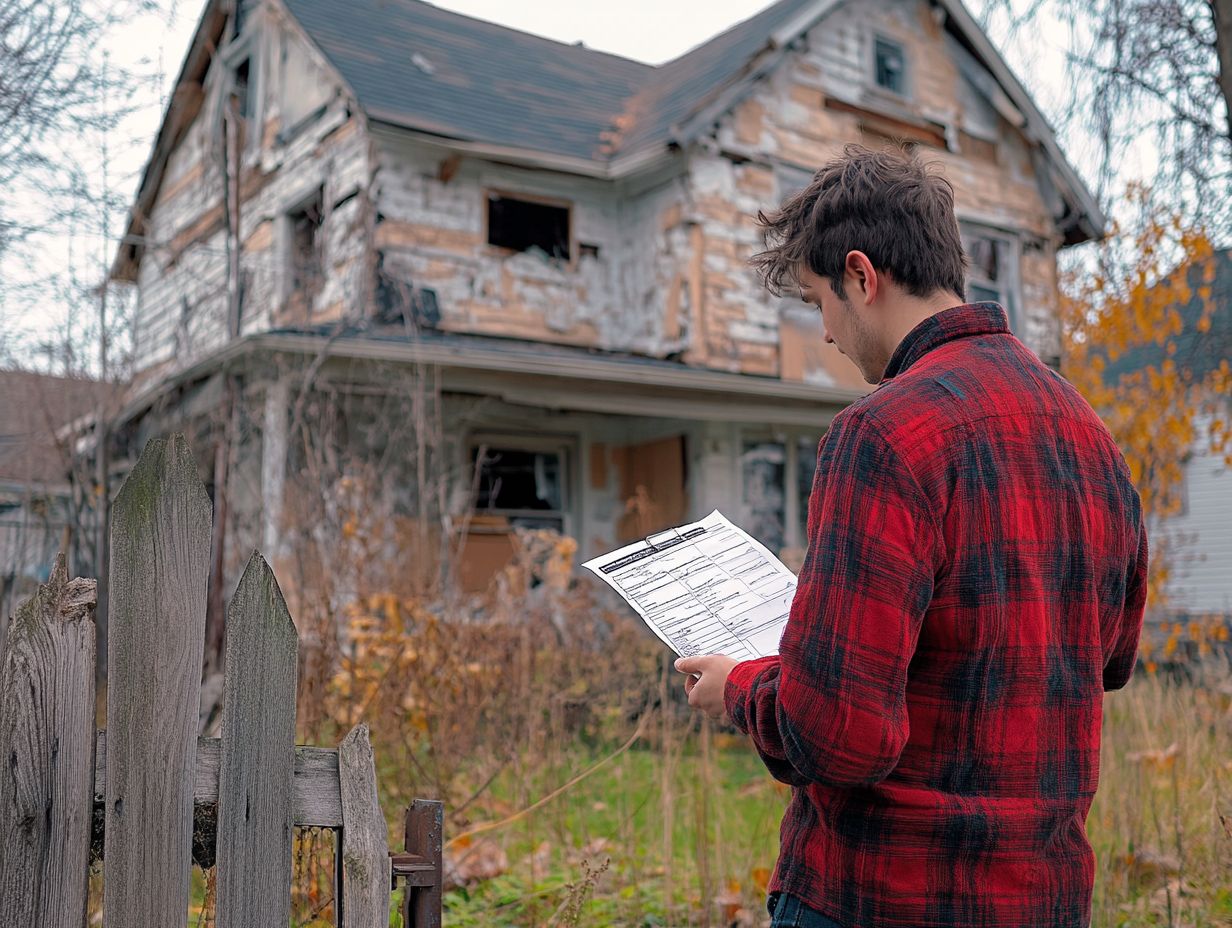
Several factors can significantly impact your home insurance rates. These include the condition of your property, your maintenance practices, coverage limits, and even your financial health. Each of these elements plays a crucial role in determining your insurance costs.
The geographical location of your home also plays a substantial role. If you re in an area prone to natural disasters or high crime rates, you may face higher premiums.
Property features, such as the age of your roof and whether you have security systems in place, further influence the overall risk assessment that insurers conduct.
Your claims history, or the history of your insurance claims, can act as a red flag, indicating potential risk to insurers. This might result in increased rates. Act now to keep your home safe by taking proactive measures with home maintenance. Ensuring your property stays in top shape can make a difference.
Regularly reviewing your coverage limits is wise. This helps to avoid being over-insured. By making these adjustments, you enhance your home s safety and can enjoy lower premiums over time.
How Often Should a Homeowner Review and Update Their Policy?
You should review and update your insurance policies at least annually or after any significant life changes. This ensures they align with your current needs and financial situation.
This practice is vital for safeguarding your investment. It s especially important during policy renewals or after major renovations.
As property values fluctuate and your personal belongings evolve, it’s essential to determine whether your existing coverage adequately protects your assets. Changes in your financial circumstances can also influence the level of protection you require.
Keeping an up-to-date home inventory streamlines this review process. It offers a clear snapshot of all your possessions, helping you identify any gaps in coverage that could leave you exposed in unexpected situations.
What Are Some Common Additional Coverage Options for Home Insurance?
Common additional coverage options that you might consider as a homeowner include flood insurance, sewer backup coverage, and emergency coverage. These provide essential protection beyond standard homeowners insurance policies.
These options address specific risks that many homeowners face, particularly based on their geographic location. For example, if you live in a flood-prone area, flood insurance becomes critical. It ensures that damages from rising waters won t leave you financially stranded.
If your home is susceptible to basement flooding, sewer backup coverage can be a lifesaver. It offers support when sewage systems overflow.
Emergency coverage acts as a safety net for unexpected incidents, like a tree crashing onto your home or the need for urgent repairs. This provides much-needed peace of mind during crises.
Understanding these additional options is crucial. They enable you to tailor your policy to your unique circumstances, effectively safeguarding your property against potential threats.
How Can a Homeowner Avoid Making These Mistakes?
To avoid common home insurance mistakes, actively engage in your responsibilities. Consult with your insurance agent, understand the claims process, and regularly evaluate your coverage needs to maintain financial stability.
This proactive approach allows you to confidently ask your insurance agent essential questions. For example, ask which specific events or damages are covered under your policy.
It s crucial to familiarize yourself with the nuances of your insurance documents, including deductibles and limits. Education is key. This knowledge enables you to adapt your coverage as life changes whether it s welcoming a growing family, embarking on a home renovation, or navigating a career shift.
Staying informed about policy updates and industry trends enhances your ability to make savvy decisions that secure your financial future.
Preguntas Frecuentes
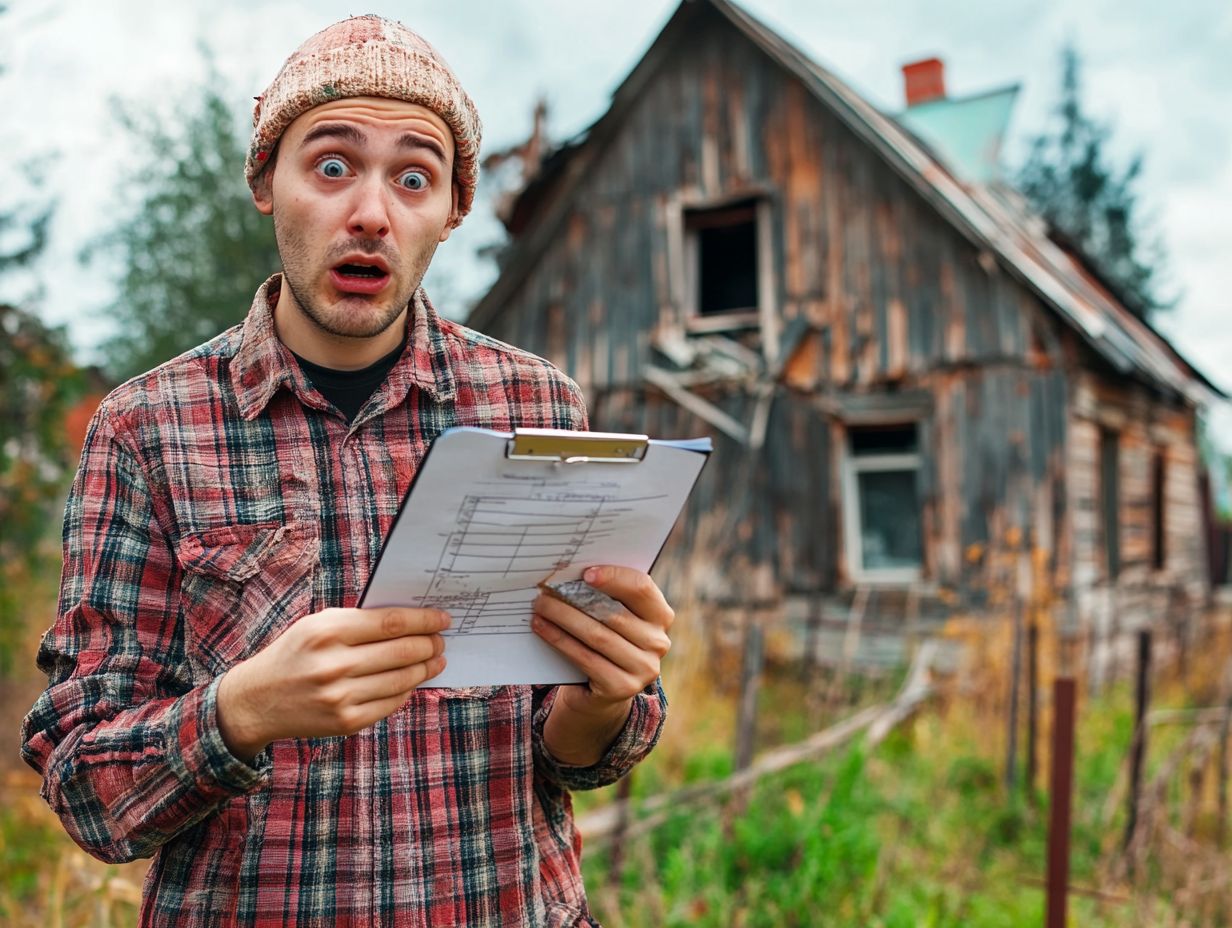
Cu les son los 5 errores comunes de seguros de hogar que se deben evitar?
Los 5 errores comunes de seguros de hogar que se deben evitar son subasegurar su hogar, no actualizar su póliza regularmente, no entender las exclusiones de cobertura, no comparar precios para obtener la mejor tarifa y no comprar suficiente cobertura de responsabilidad civil.
Por qu es un error subasegurar su hogar?
Subasegurar su hogar significa que su p liza no cubrir completamente el costo de reconstruir o reparar su hogar en caso de un desastre. Esto puede resultar en gastos significativos de su bolsillo.
Con qu frecuencia debo actualizar mi p liza de seguro de hogar?
Se recomienda revisar y actualizar su p liza de seguro de hogar anualmente. H galo cada vez que realice renovaciones o adiciones importantes a su hogar.
Cu les son algunas exclusiones comunes en la cobertura de seguros de hogar?
Algunas cosas que no est n cubiertas son desastres naturales, como inundaciones y terremotos. Tambi n puede haber exclusiones para da os por desgaste y ciertos tipos de propiedades, como joyas o arte.
C mo puede beneficiarme comparar precios para obtener la mejor tarifa?
Comparar precios es clave para ahorrar en su seguro de hogar. Diferentes compa as ofrecen tarifas distintas, as que busque las mejores cotizaciones ahora.
Por qu es importante comprar suficiente cobertura de responsabilidad civil?
Comprar suficiente cobertura de responsabilidad civil le protege de ser responsable por gastos de lesiones o da os en su propiedad. Tambi n cubre honorarios legales si alguien le demanda.

